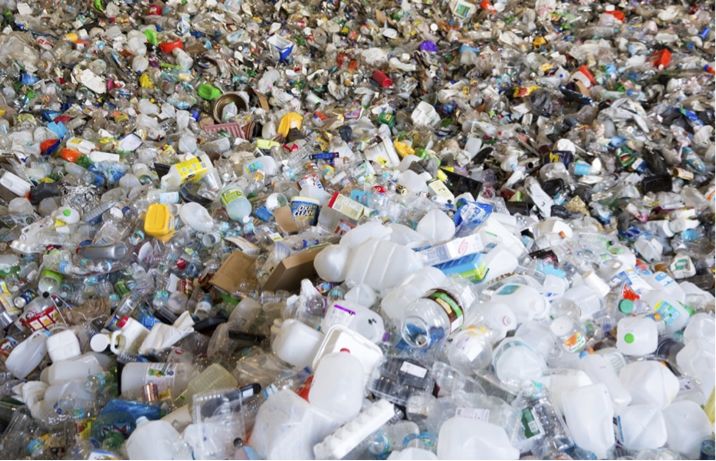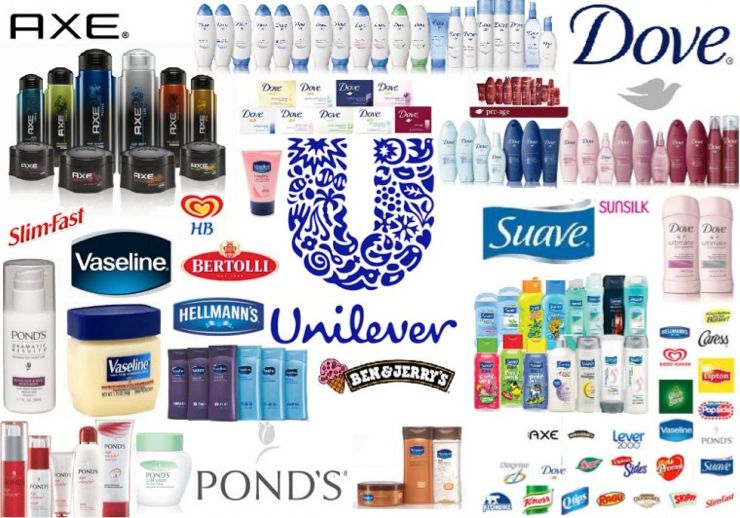Blog post -
Unilever’s 2025 Goals for Sustainable Plastic Packaging
One of the world’s largest consumer packaged goods companies is taking a big step towards more sustainable plastic packaging. Unilever, owner of many well-known brands such as Dove, Axe, Hellmann’s, and Persil, just to name a few, announced a commitment to ensure that all of their plastic packaging is fully reusable, recyclable or compostable by 2025.
Unilever is committing itself to introducing recyclable plastic packaging across all of its brands, including its household cleaning, food and cosmetic products.
Unilever’s CEO made it clear that plastic material is important for the company: “Our plastic packaging plays a critical role in making our products appealing, safe and enjoyable for our customers. Yet it is clear that if we want to continue to reap the benefits of this versatile material, we need to do much more as an industry to help ensure it is managed responsibly and efficiently post consumer-use,” said CEO Paul Polman in a statement.

Unilever said its 2025 commitment involves ensuring that “it is technically possible for its plastic packaging to be reused or recycled and there are established, proven examples of it being commercially viable for plastics re-processors to recycle the material.”
The company is asking other companies in the fast-moving consumer goods industry to help make progress towards a ‘circular economy’, which means designing products so that resources are used in a cyclical way. Materials can be regenerated and constantly flow round a ‘closed loop’ system, rather than being used once and then discarded.
Unilever has also renewed its membership in the Ellen MacArthur Foundation, a British registered charity with the stated aim of inspiring a generation to re-think, re-design & build a positive future through the framework of a circular economy. The Foundation has lately gained popularity thanks to its New Plastics Initiative, aimed at capturing more plastics for reuse and divert the material from disposal. According to the British charity, only 14% of all global plastic packaging is recycled.

Unilever, as part of its work with the foundation and its initiative, said it will publish what it calls a full palette of the plastics the company uses in packaging by 2020.
“By committing to ambitious circular economy goals for plastic packaging, Unilever is contributing to tangible system change and sends a strong signal to the entire fast-moving consumer goods industry, MacArthur said in a statement.
Unilever previously revealed plans to reduce packaging weight by one third by 2020 and increase recycled plastic content by at least 25% by 2025 compared with 2015 numbers.
Part of the company’s work is finding a way to recycle “multi-layer sachets,” or pouches, and then sharing that solution with the industry. This work is particularly important for coastal areas to help keep these plastics from entering oceans, Unilever said.

“To address the challenge of ocean plastic waste we need to work on systemic solutions – ones which stop plastics entering our waterways in the first place.” - Paul Polman said.
He added: “We hope these commitments will encourage others in the industry to make collective progress towards ensuring that all of our plastic packaging is fully recyclable and recycled.”
Recently, Marks & Spencer announced it was investigating plastic polymers to be used to create recyclable packaging for its products.
Sources:
Read more Swedbrand blog posts at swedbrand-group.com/blog, or visit our website at swedbrand-group.com.
Topics
- Packaging, packing
Categories
- plastic
- packaging
- compostable
- recyclable
- reusable
